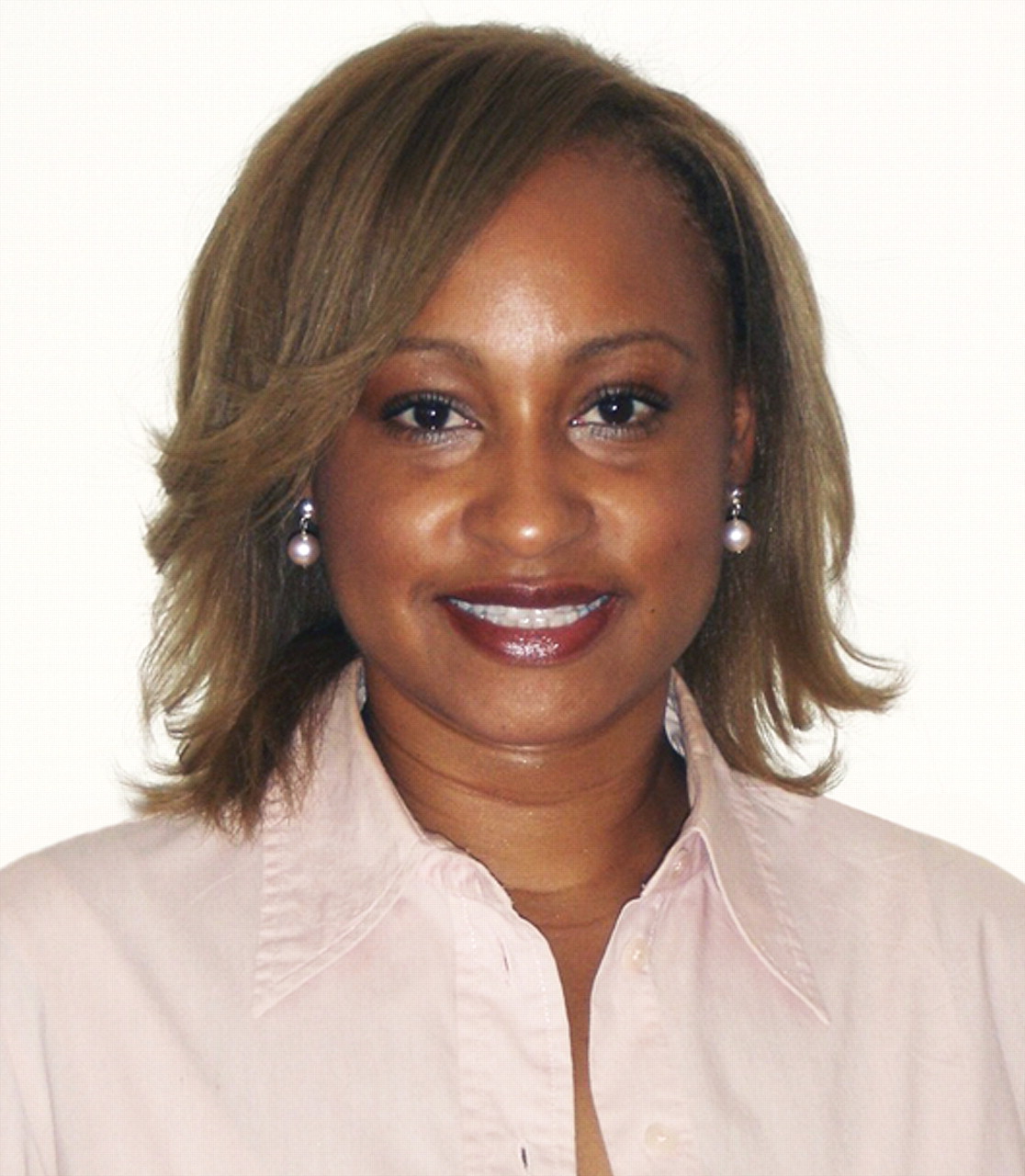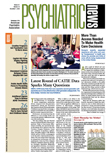While there is considerable evidence that campaigns by APA and other mental health organizations to defeat the stigma attached to mental illness are succeeding, there is one critical venue where lots more work needs to be done—in the offices of Congress.
“Stereotypical beliefs about psychiatry are pervasive.... They are everywhere on the Hill,” pointed out Toya Clay, M.D., who has completed six months on Capitol Hill as the 2006 APA Jeanne Spurlock Congressional Fellow.
The fellowship, which is open to PGY-2 and PGY-3 general and child psychiatry residents, helps members-in-training gain experience in health policy and related legislative issues by working in the office of a member of Congress or on the staff of a congressional committee. It comes with a $20,000 stipend plus reimbursement for the costs of moving to Washington, D.C.
Clay, who has recently begun child and adolescent psychiatry residency at the University Illinois at Chicago/Institute of Juvenile Research, worked in the office of Rep. Jan Schakowsky (D Ill.),a member of the House Energy and Commerce Committee, which has jurisdiction over many health-related issues. (She was a psychiatry resident at columbia University during her fellowship.)
Clay noted that Schakowsky “has a stellar voting record on mental health legislation in general and has opposed legislation that would have excluded adequate mental health coverage or services.”
While stigma often dominates congressional discussions about mental illness and its treatment, Clay emphasized that “just being a psychiatrist in a member's office gives the member and their staff the opportunity to develop a personal and realistic image of psychiatrists, mental illness, and patients who suffer with mental illness.”
Clay addressed the stigma issue soon after starting her Hill stint. She recognized that calls or visits to Schakowsky's office from people with obvious psychiatric problems were not rare, but staffers were reluctant or unsure how to respond to these individuals.
“To address this problem, I drafted a recommended approach that the staff could use to manage such situations safely,” she said.
Several staffers sought her out to discuss problems or enlist her skill for“ free counseling sessions,” she noted.
By serving as Schakowsky's health legislative fellow, Clay said that she had input into all health-related legislation under consideration during her time on Capitol Hill.
One key piece of legislation on which she worked was the reauthorization of the Ryan White Comprehensive Aids Resources Emergency Act, known as the CARE Act, which since 1990 has funded a wide array of HIV/AIDS services, including substance abuse treatment, for uninsured people with HIV or AIDS.
“I was very excited to participate in this legislative process because I believe that because of the nature of HIV/AIDS, community psychiatrists should be at the forefront in fighting this epidemic,” Clay said. “Not only are we experts inn the risk factors for this disease—risks such as substance abuse and the willingness to engage in high-risk sex—but we are also trained to recognize and address the biological, psychological, and sociocultural realities that indirectly put people at risk.”
Clay noted that she was part of “a dedicated group of health staffers, both Republican and Democratic, that met twice weekly for several months to work on improving the CARE Act.”
She added that she was one of only two health care professionals in the group; the other was a registered nurse. “One of the most important contributions I made to this group was to describe patients I had cared for in various capacities as an intern and more recently as a resident,” she emphasized.
In addition to her work on the CARE Act reauthorization, Clay said she wrote two speeches for the member's chief of staff—one on mental health care funding and one on children's mental health issues. She also attended health-related briefings and answered constituents' mail concerning health and mental health.
She advised future Spurlock fellows to carve out specific mental health issues to work on as soon as possible in their fellowship. This cements the psychiatrist's role as part of the member's team.
“My other advice,” she said, “is to ask lots of questions” about legislative process and the way things work on Capitol Hill. It's also crucial “to teach other staff about mental health and psychiatry.... You have to seize such opportunities because mental health is so stigmatized, few people will come out and ask you about those issues.”
As for what key lessons she learned During her fellowship, Clay stated,“ My experience on Capitol Hill reinforced my conviction that advocacy works—and it is possible and necessary to be involved in advocacy at all stages of your career in psychiatry. Our patients are often unable to advocate for themselves, and this leaves them vulnerable. Advocacy is just one of the many ways we can protect, support, and provide the best care for our patients.”
The Jeanne M. Spurlock Congressional Fellowship is administered by APA's Office of Minority Affairs and Department of Government Relations in collaboration with the American Psychiatric Foundation and the American Academy of Child and Adolescent Psychiatry. The fellowship is supported by an unrestricted educational grant from Wyeth Pharmaceuticals. ▪

